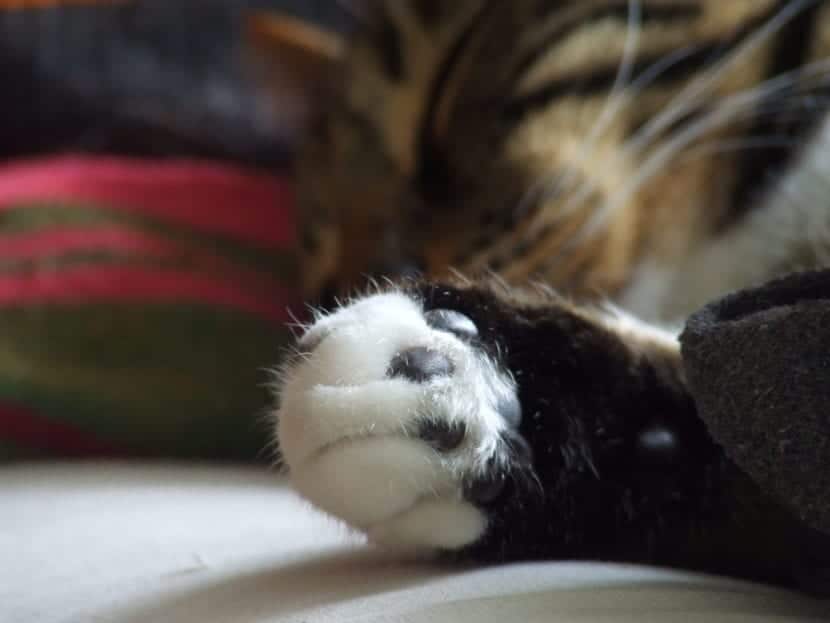
Healthy cats are animals that groom themselves several times a day and, therefore, do not give off any odor that we can perceive. However, things change when they are sick, because that is when their body odor becomes very unpleasant.
For this reason I am going to tell you about body odor of cats, since this way it will be easier for you to know what to do in case your furry ones start to smell bad.
Why don't cats usually smell bad?

Cats, even if they live in safe homes, still maintain a good part of their wild instincts. And one of them, surely the strongest, is survival. It is true: at home he may not have - and should not have, in fact - any enemies, but still he, just in case and also because it is very clean, it will groom itself very often so that potential predators are not attracted to it.
What are the causes of feline bad smell?
There are several:
- Infectious: for example, from the ear or from the mouth. In the first case we will see that they scratch often, and in the second they may have infected teeth or palate, an oral abscess or a disease of the digestive system.
- Digestive: whether you are given an inappropriate diet (rich in cereals) and / or if you have a food allergy, it can also give off a bad smell.
- Intestinal parasites: unfortunately you are very vulnerable to them, especially if you are very young or if you go out.
- Sexual maturation: when it reaches its sexual maturity, its urine gives off a very strong and unpleasant aroma. To avoid this there is nothing like castration.
- Glandular: although it is more common in dogs, it can appear in cats. And it is that under the tail it has glands that secrete a substance with a characteristic odor if they become clogged.
- Bacteria and fungi: external parasites, such as fleas or ticks, cause skin infections that attract bacteria and / or fungi, which are the ones that produce bad odor as well as itching, pain, and peeling.
How to remove it?
The first thing to do is take him to the vet to tell you why he smells bad and how to treat him, since for example if he has parasites with an antiparasitic drug the problem can be solved, but if what happens to him is that have a food allergy, your diet will have to be changed.
But apart from that, at home you will have to make some changes:
- Brush it at least once a day, two if it is in the molting season or if it has long hair.
- Give him a quality diet, without cereals or by-products.
- Clean their teeth once a day with a specific toothpaste for cats that you will find for sale in pet stores.
- Keeping your litter box clean, no feces or urine. For that I advise using quality agglomerating sand, or silica. You have more information here.
- Deworm it both inside and out. Once a month it is advisable to give him a pill to eliminate intestinal parasites. In the case of external ones, you can put an antiparasitic on them only during the warm season, or use homemade if you never leave home.

Thus, your furry can recover.